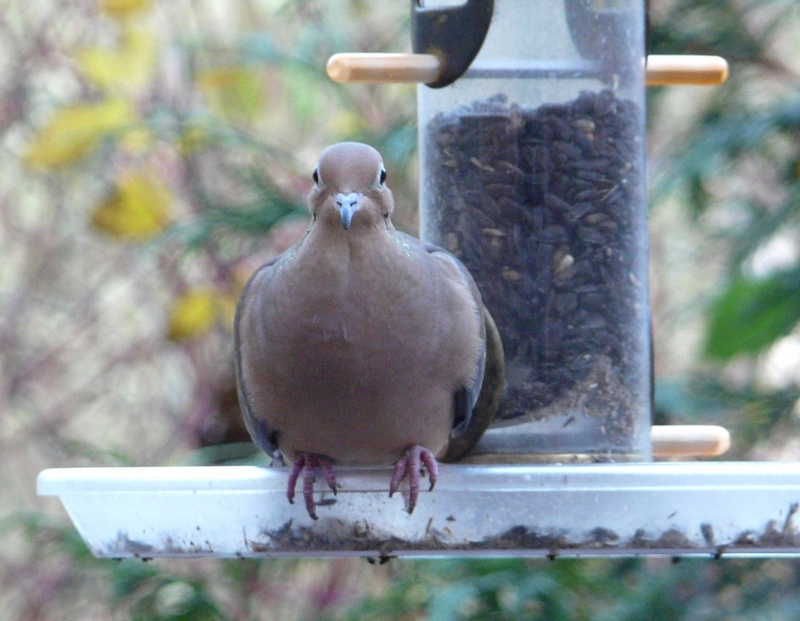There are many diseases that can plague both mourning and white-winged doves in the United States. And some of these mourning dove diseases and white-winged dove illnesses can cause problems for local and migrating dove populations. Avian trichomoniasis, a naturally-occurring parasite, is the likely cause of minor dove die-offs observed recently in the Central Flyway.
“It’s a fairly common occurrence, but folks should be aware of it,” said Corey Mason, the Texas Parks and Wildlife Department (TPWD) dove program leader. Trichomonas gallinae is a single cell protozoan common in nature that circulates within bird populations, impacting many different bird species including mourning and white-winged doves. In fact, trichomoniasis is considered by many avian disease specialists to be the most important disease of doves in North America. Outbreaks at bird feeding stations and similar locations reported to the National Wildlife Health Center have occurred from coast-to-coast within the USA.
Epizootics due to T. gallinae can happen year-round, but most disease outbreaks have been reported during late spring, summer and fall. Because oral lesions often affect the ability of the mourning and white-winged doves to feed, infected birds lose weight, appear listless, and stand in groups. Although avian trichomoniasis poses no human health risks, precautions should always be taken when handling sick or dead doves and other birds.
Officials state that because this parasite is transmitted through cross-feeding and bill contact, impacts to mourning and white-winged dove populations can be minimized by taking precautionary measures, including removal of dead birds and temporary removal of artificial water and feed or routine cleaning of artificial watering areas and replenishing bird feeders with fresh feed daily. Platforms and other surfaces where feed may collect, including the area under feeders, should be frequently decontaminated with 10 percent solution of household bleach in water.
Though trichomoniasis is disease that impacts white-winged and mourning dove populations, it by no means threatens their populations currently. However, it is something that everyone must work to identify and avoid, especially those with backyard bird feeders. Mourning dove diseases and white-winged diseases can vary between different locations and times of the year, so learn as much as possible about each of the illnesses before making your diagnosis.

I found a white winged dove yesterday. Some feathers are missing on the chest. He sits. Going to try to nurse him back to health.
Found a mourning dove lying on its chest in my backyard with its tail erect in the air. Today had a 108 degree heat index, so I tried to slowly lay a pan of water next to it. It slowly writhed around and then flew away. I went back inside, and came back out half an hour later and the bird was there again in the same rear end up position, any idea what is wrong with it?
Are Mourning Doves related to Pigeons?
What are the diseases that Mourning Doves carry that can be contracted by humans? I was told in my real estate course that the feses, of these birds, can cause fatal lung disease in humans!
There was a fourteen girl in our town who died from lung complication contracted from doves.
No such person as Vina Fundamira.
No such person as Cuba Fundamira
There are 2 mourning doves trying to perch on my porch and one of them has a yellow spot on it’s neck. Could that be a sign of some disease?
We have found 6 mourning doves dead in our yard over the last few days. Is there something going around killing them?? This is very disheartening as most likely some are the babies we watched hatch in Springtime 2021. Can you tell me what’s going on?
I have 6 dead mourning doves found on my PA property the last few days. We did have a temp drop but now have a warming. The lowest was 6 degrees I believe. I’m concerned my doves got sick or something. I found them frozen, 1 on the ground, 2 on my back porch, another in the garden in front of my house and just today 2 under the stairs near my back porch. Please advise or tell me where I should send them to be autopsied.
My dove has seizures. Her neck draws back, she is drawn backwards, and wildly flops on her back. What is wrong?